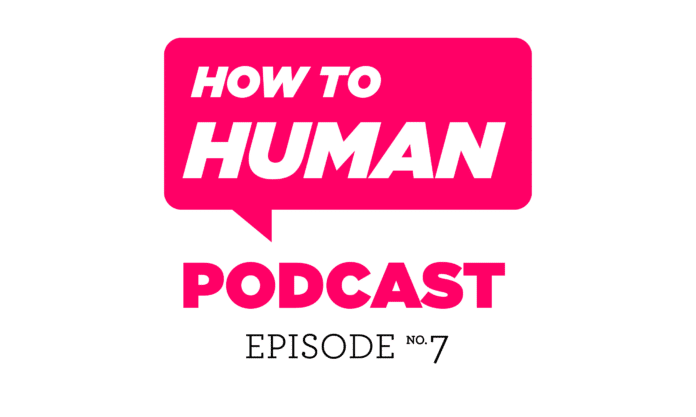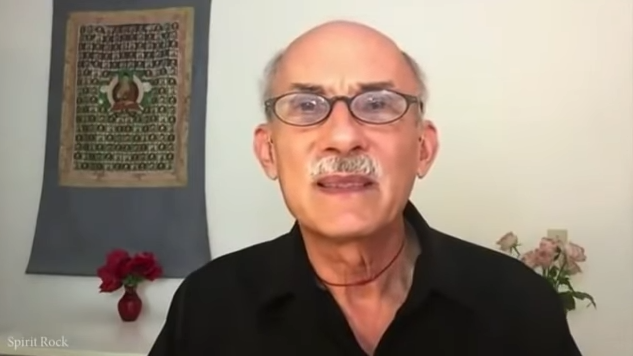Who is your enemy? Mind is your enemy. No one can harm you more than your own mind untamed. And who is your friend? Mind is your friend. No one can help you more than your own mind, wisely trained—not even your own mother and father. —Buddha
How can we be mindful of the mind in the mind? Just as there’s a river of bodily sensations passing through consciousness, just as there’s a river of 500 emotions passing through us, there’s also a river of thoughts. If you try to sit silently for a minute, what happens? Does your mind become quiet and stay quiet? The mind will not become quiet upon command. Instead, what most people experience is the inner waterfall, a cascading stream of thoughts. It’s like a cartoon I saw once of a car crossing a vast desert landscape, where a roadside sign says, “Your own tedious thoughts the next 200 miles.”
One scientist declared that we have an average of about 67,000 thoughts a day. I think it’s probably closer to 37,000, but whatever the number is, the river of thoughts is not under your control. And these thoughts have very little honesty. They will tell you any kind of story, and be dedicated to many beliefs that are absurd. Much of the river is composed of reruns. It’s like not being able to sleep in a hotel room and you pick up the remote control and turn on the TV but all you can get are the cable shopping stations selling cheap jewelry and gimmicky kitchen gadgets with a breathless sense of urgency that just goes on and on. But in your case, it’s reruns of your last love affair or of a conversation you had at work, or anxiety and shame about some problem, or anger at being treated poorly by someone in your distant past. And no matter what you wish, you have trouble changing the channel. The whole parade just keeps repeating and repeating without resolution. It can be really crazy in there—have you noticed?
What can you do with your thoughts, especially the stories of anxiety and fear? With mindfulness of the mind, you come to realize that much of what you believe is the product of your imagination. Thoughts can be misleading in many ways. Your thoughts are filled with praise and blame, hope and fear. You will hear the voices of your parents, internalized like monologues, sometimes appearing as the inner judge and the inner tyrant. Then are the voices of the unloved child or the ambitious achiever, voices who are always trying to fix or deceive us. There are healthy voices, wise voices, and loving voices, too. But most of the time your thoughts are like a bureaucracy that continues to perpetuate itself even when the need for it has been outgrown, even when it’s actually become unpleasant and restrictive and possibly dangerous to you. Marcus Aurelius wrote, “The soul becomes dyed with the color of its thoughts.” So what can you do?
With mindfulness, you can stop taking them so seriously. You can step back and listen to your thoughts mindfully and then decide whether they’re useful or not. It’s true that you still need some thoughts to problem-solve, but you could probably eliminate 90 percent of your thoughts and still have plenty to do the job.
So the first thing you can do is to listen to your thoughts with mindful awareness. You will see the evanescent nature of thoughts, that they are fleeting ideas, all impermanent. And then you can begin to realize that just because you have a thought doesn’t mean you have to believe it—much less act on it—and certainly not get caught up in the whole stream of them. You can release the mind of some of its more dangerous patterns. Observing the mind with mindfulness brings liberation.
After you learn to see what’s in your mind and learn to release or disidentify with the unhealthy patterns, you discover a deeper level of liberation. My teacher Sri Nisargadatta explained it like this: “The mind creates the abyss and the heart crosses it.” When you rest in the present moment with mindfulness, you open to a presence which is timeless and beyond the understanding of thought. It’s by returning to the awareness beyond thoughts that you experience real healing. When your mind and heart open, you realize who you are, the timeless, limitless awareness behind all thought.
Remembering who you really are, you see with the heart. You see the face of someone you love, you see the plum tree that’s blooming in front of you. You may be sitting with someone who’s grieving or angry, or maybe you’re just walking back to your car, but now you’re doing it while being fully awake. It’s so beautiful to come back to this Earth. Even in great difficulty you can become aware that you are in the presence of mystery, and this experience alone is breathtaking in its power.
For Nisargadatta, the mind creates the abyss of right and wrong, of worries and fears that lead us away from this timeless presence. The only power that can cross this abyss is the awakened heart. Even in difficulty, the awakened heart rests in love.





